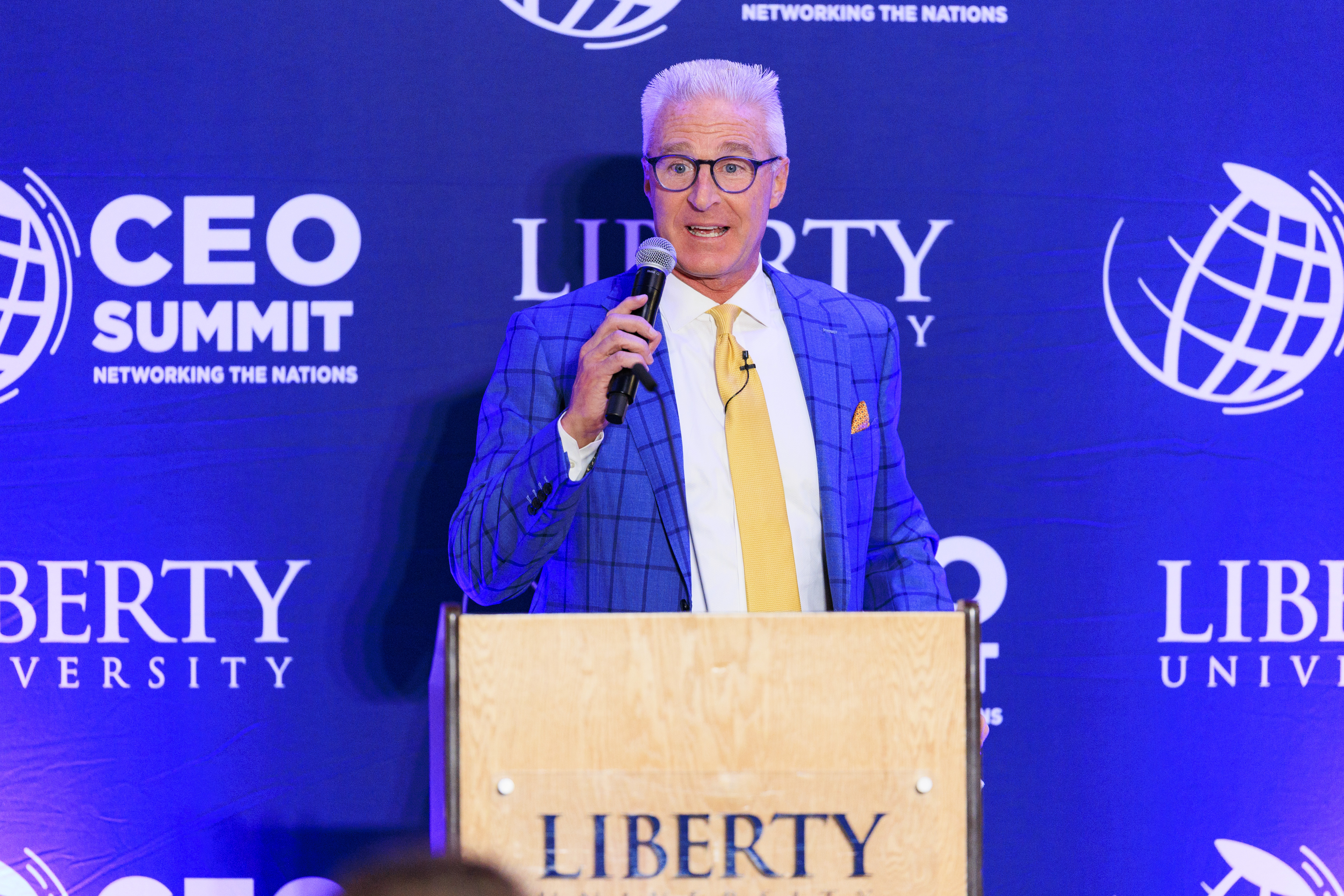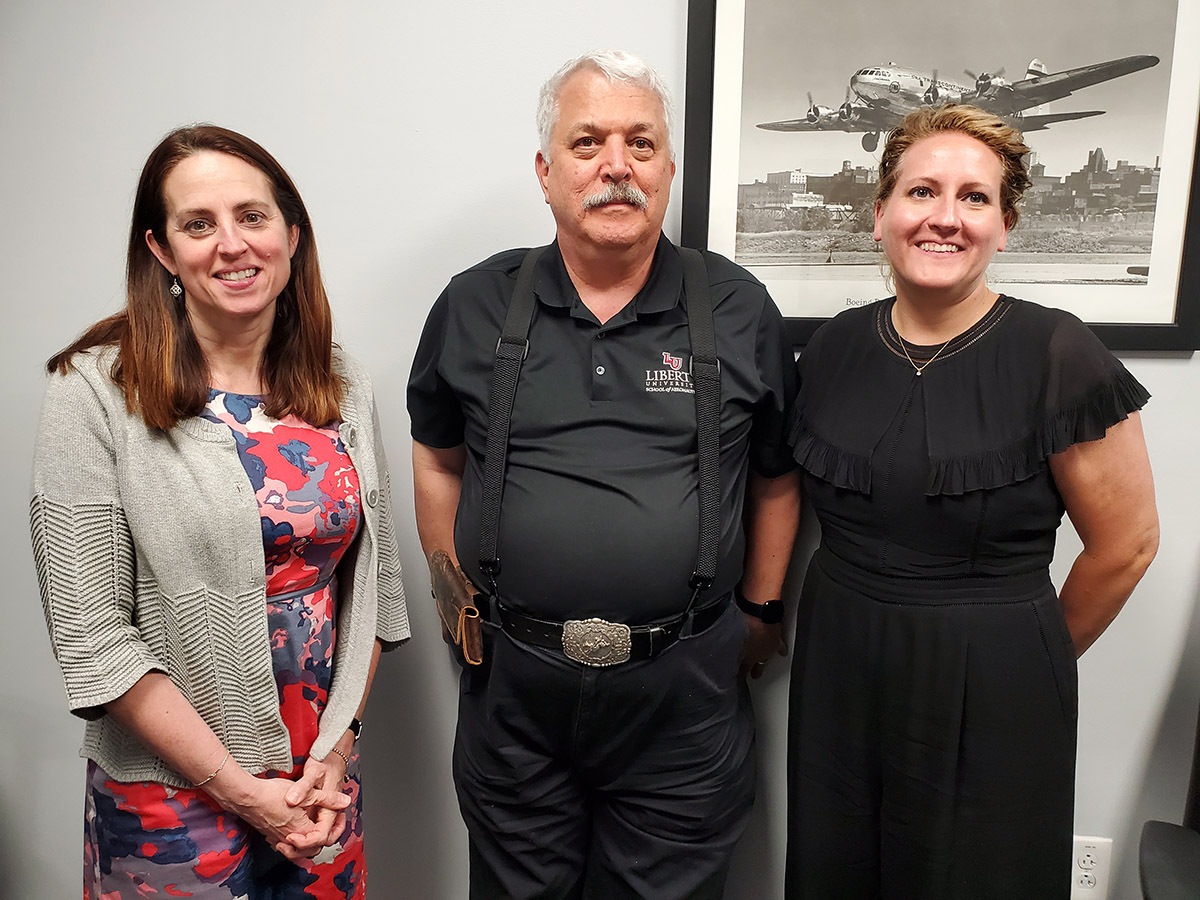Liberty Law fall symposium focuses on landmark Supreme Court case that ushered in new era of administrative law
October 22, 2025 : By Abigail Degnan - Office of Communications & Public Engagement
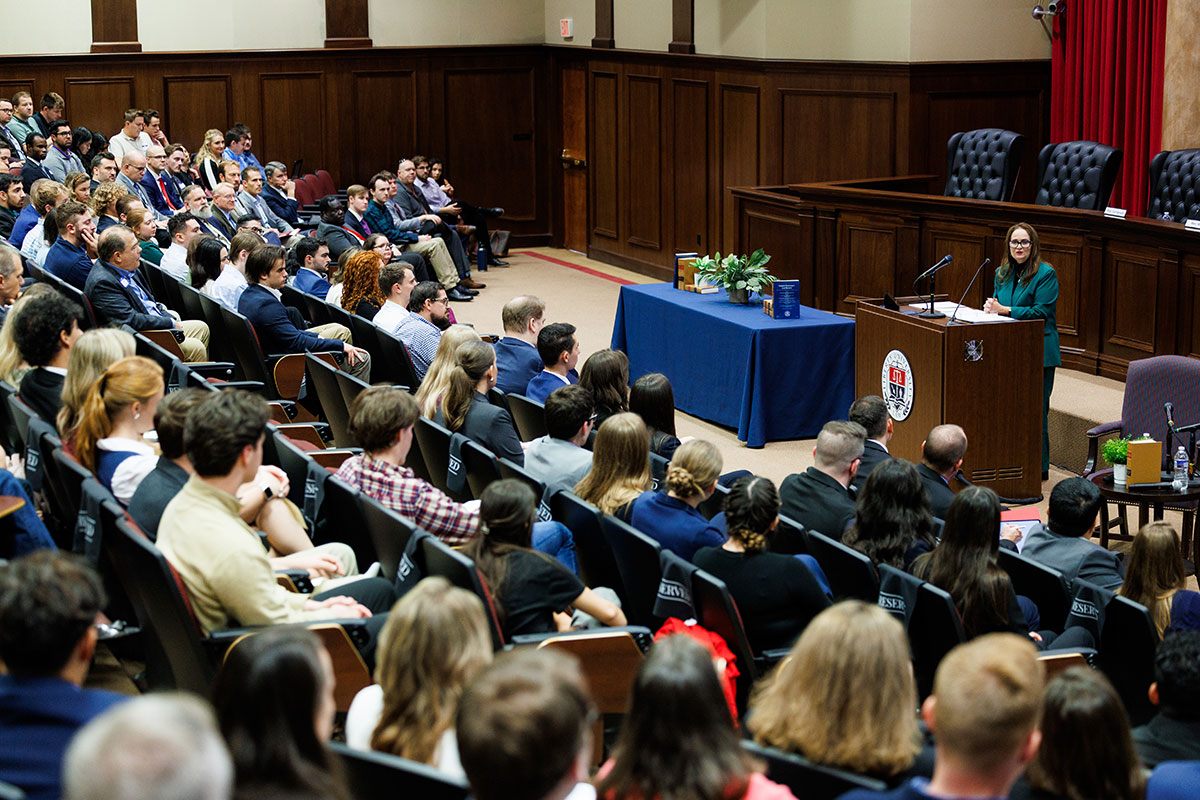
On Friday, the Liberty University School of Law’s Supreme Courtroom was packed with students and community guests for the “Liberty Law Review’s” symposium, Loper Bright: A New Era of Administrative Law, which focused on the landmark 2024 Supreme Court case Loper Bright v. Raimondo.
In the case, the Supreme Court overruled the Chevron doctrine from a 1980s case that, under certain circumstances, required courts to defer to a federal agency’s interpretation of ambiguous wording in federal laws. Overturning Chevron gives judges the ultimate ability to decide the meaning of words in a law, which has profound implications for the administrative state. The case centered around Loper Bright Enterprises, a family-owned herring fishing company based in New Jersey, that sued a federal agency over a rule that required the company to pay for government-mandated observers on its fishing boats, even though that requirement was not present in the statute. The fishing company argued that the agency overstepped its authority.
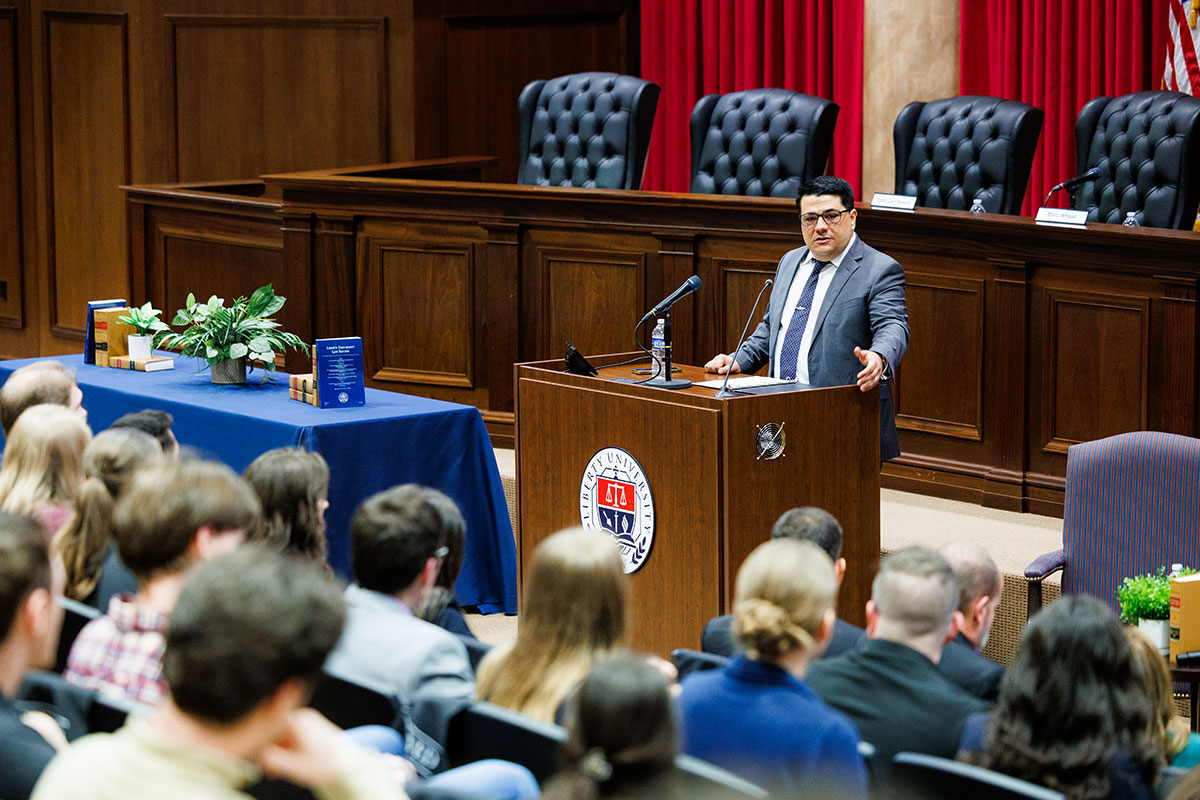
The Hon. Jennifer Walker Elrod, chief judge of the 5th U.S. Circuit Court of Appeals, was the featured speaker at Friday’s event. She helped students and the community understand how the Supreme Court case has impacted the future of administrative law while also showcasing the outstanding work and diligence of “Liberty Law Review” students in contributing legal and educational insights to their community.
The “Liberty Law Review” is a student-led legal journal and organization within the Law School that publishes four issues annually, focusing on various trending legal subjects. Additionally, the journal holds special events throughout the year to encourage and foster further legal discourse at the law school.
School of Law Assistant Professor Eric Bolinder, who was part of the counsel team for Loper Bright and the author of “Fishing for Justice: The Legal and Moral Case for Loper Bright,” gave a brief introduction about the case before inviting Elrod to the podium. Elrod was nominated to the federal bench by President George W. Bush in 2007. Before that, she served as a judge of the 190th District Court of Harris County. In addition, she is an elected member of the American Law Institute and serves on the Texas State Bar Committee on Pattern Jury Charges and the Board of Directors of the Texas Center for Legal Ethics and Professionalism. She became chief judge of the 5th U.S. Circuit Court of Appeals last October. Elrod earned her bachelor’s degree from Baylor University and her law degree from Harvard Law School.
“I’ve heard today from the Dean how Liberty Law (alumni) are arguing in the Supreme Court and clerking on courts all over the country and doing so well, and this is an exciting place to be,” Elrod said. “As a point of personal privilege, it’s nice to be here as a Christian who also seeks to serve God to grow in my faith every day, so that fits in my personal worldview as well.”
Elrod discussed the background of the Loper Bright decision.
“Loper Bright was important because it brought our administrative law back in line with our Constitution’s separation of powers design,” she said. “For most of the students in this room, you will be the first post-Chevron cohort of attorneys in generations.”
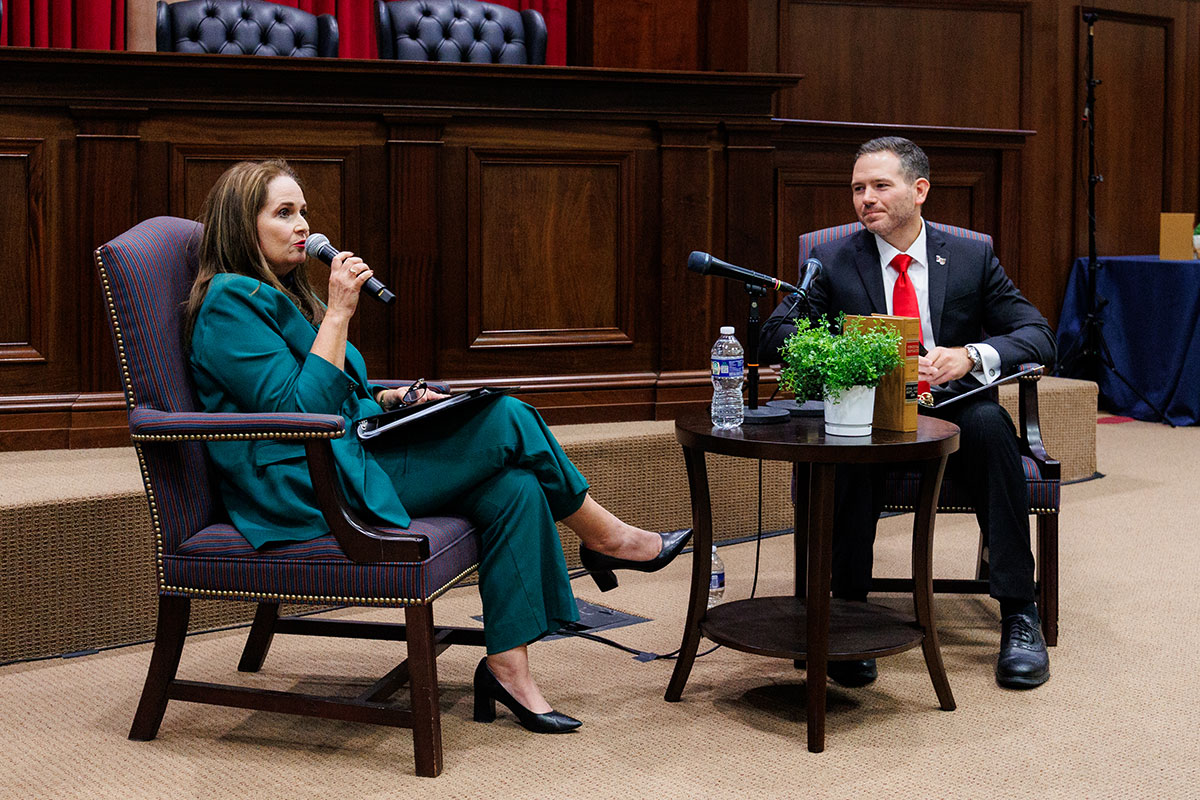
After her speech, she sat down with School of Law Dean Timothy Todd for a fireside chat about her career, her life, advice for the law students, and the details surrounding Loper Bright and other cases.
“You have to be persistent in life,” she said after telling the audience she was originally denied being appointed as a state judge twice before she was given the position. “If you think you are called to do something or it’s the right thing, you cannot let one no or even two nos tell you that you shouldn’t be doing it. You should keep it up.”
2L (second-year law student) Brendan Wells, candidate on the “Law Review,” said Elrod’s “humble and insightful discussion on Loper Bright profoundly deepened my understanding of administrative law.”
“Her nuanced perspective on the foundational cases leading to the decision, coupled with her emphasis on the constitutional ‘why’ — particularly why Chevron’s deference was fundamentally flawed — provided invaluable depth beyond classroom lectures,” he said.
Wells said Elrod was highly engaged with the “Law Review” members.
“Events like these, hosted by the “Law Review,” elevate our education by bringing distinguished speakers from afar who generously invest time, not just in speaking but in truly connecting with us,” he said. “Chief Judge Elrod took the time to ask Law Review members about our articles and get to know us personally, making the experience all the more impactful. It meant a lot. The character of the speakers that Liberty Law brings for all of us to be able to learn from is special.”
The event continued with two panels featuring law professionals who worked on the case. The first panel featured Will Yeatman from Pacific Legal Foundation, Marc Wheat from Advancing American Freedom, and William Burner from Liberty University (adjunct faculty). The second panel included Ryan Bangert from Alliance Defending Freedom, John Vecchione from New Civil Liberties Alliance, and Michael Pepson from Americans for Prosperity Foundation. The panelists will also be featured in the third issue of “Liberty Law Review” volume 20 this upcoming spring. The issue will be focused on Loper Bright.
3L (third-year law student) Isaac Rizkallah, editor-in-chief of the “Law Review,” said they chose to focus on Loper Bright because of its relevance to Liberty Law’s own values.
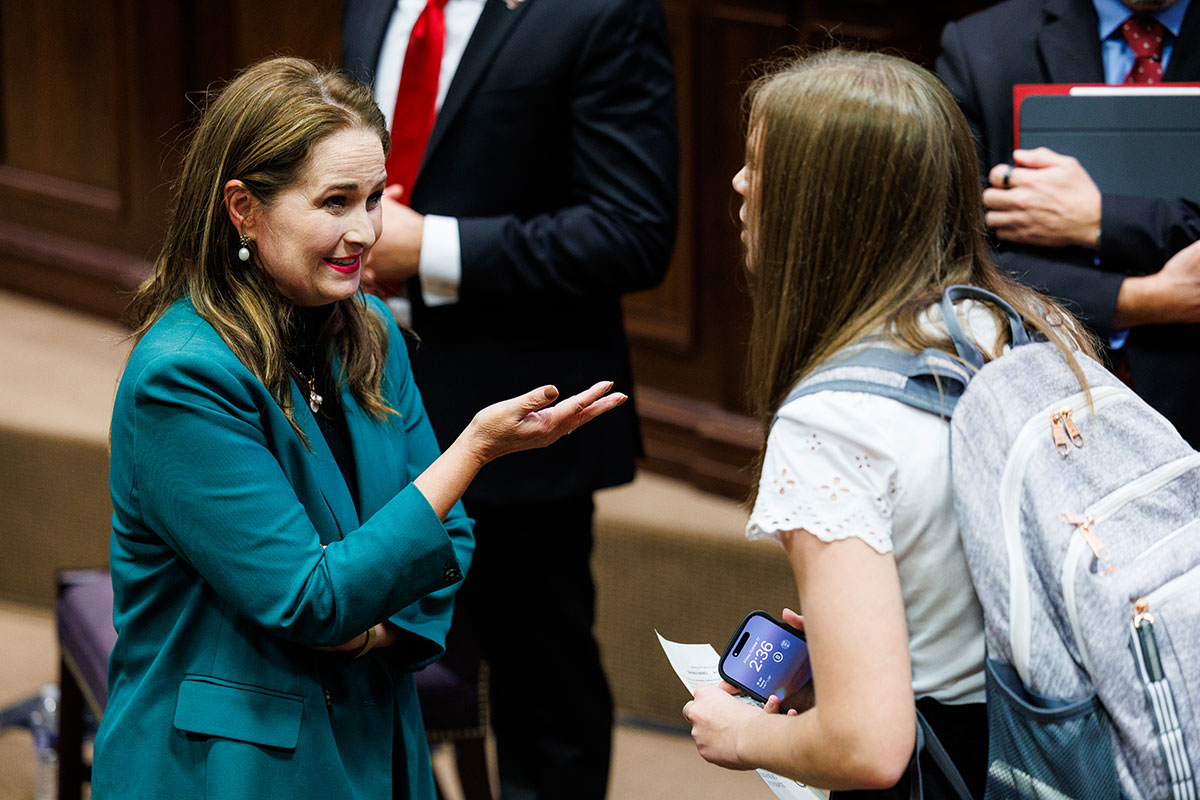
“The ‘Liberty Law Review’ furthers Liberty’s mission of Training Champions for Christ by hosting special symposia to discuss integrating biblical truth into cutting-edge legal trends,” he said. “We centered the event on Loper Bright v. Raimondo because it captures the Supreme Court’s renewed commitment to the separation of powers principle, which reflects ‘Liberty Law Review’s’ commitment to the legal principles that form the fabric of our nation.”
He added that the ‘Liberty Law Review’ develops its members into “champion-level editors, researchers, and authors from a distinctly Christ-centered basis. In every footnote, every sentence, and every citation, the ‘Liberty Law Review’ impacts the legal practice, and it will never lose sight of its biblical foundation.”
Todd said Liberty Law was honored to host Elrod for the fall symposium.
“We are thankful for Chief Judge Elrod’s insight and investment in the Liberty Law community. Her passion and desire to interact with students and the Liberty Law community was a blessing. We are also thankful for the panelists and speakers who shared their expertise with our students, and we look forward to the forthcoming articles and the scholarly impact that these initiatives will yield.”


